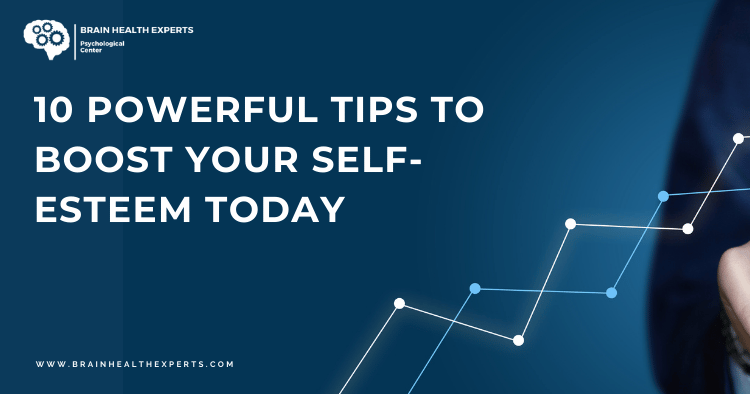Table of Contents
- Understanding Self-Esteem
- Identify Negative Self-Talk
- Set Achievable Goals
- Practice Self-Care
- Surround Yourself with Positivity
- Celebrate Your Achievements
- Learn a New Skill
- Limit Social Media Use
- Seek Professional Help if Needed
- Practice Gratitude
Understanding Self-Esteem
Self-esteem refers to the overall opinion you have of yourself, encompassing your beliefs, feelings, and thoughts about your worth as a person. Healthy self-esteem is crucial for personal growth, influencing your motivation, behavior, and relationships. According to the American Psychological Association, self-esteem can be categorized into two types: high self-esteem, characterized by confidence and resilience, and low self-esteem, which often leads to feelings of inadequacy and insecurity.
“Self-esteem is not a luxury; it is a necessity for a balanced and fulfilling life.”
FAQs about Self-Esteem
- What causes low self-esteem?
Low self-esteem can stem from various factors, including negative childhood experiences, societal pressures, and unrealistic standards set by ourselves or others. - Can self-esteem change over time?
Yes, self-esteem can fluctuate based on life experiences, relationships, and personal growth efforts.
Identify Negative Self-Talk
Negative self-talk is a critical barrier to healthy self-esteem. Start by paying attention to your thoughts. Are you your worst critic? Challenge these thoughts by asking yourself if they are true or exaggerated. Replacing negative thoughts with positive affirmations can significantly enhance your self-perception. For more on this, see 10 Powerful Affirmations to Boost Mental Health Today.
“The mind is a powerful thing. What you think, you become.”
Activity: Daily Affirmations Table
| Negative Thought | Positive Affirmation |
|---|---|
| “I always fail at everything.” | “I learn from my experiences and grow.” |
| “I’m not good enough.” | “I am worthy and capable.” |
| “No one likes me.” | “I attract positive relationships.” |
Set Achievable Goals
Setting realistic and achievable goals can provide a sense of purpose and accomplishment. Break larger goals into smaller, manageable tasks. This not only makes them less daunting but also allows you to celebrate small victories along the way. Use the SMART criteria (Specific, Measurable, Achievable, Relevant, Time-bound) to frame your goals effectively. For more insights, consider 10 Proven Strategies for Effective Goal Setting Success.
“A goal properly set is halfway reached.”
Example of SMART Goals
| Goal Type | Unclear Goal | SMART Goal |
|---|---|---|
| Career Growth | “I want to get a better job.” | “I will apply for three jobs in my field by the end of the month.” |
| Health | “I want to be fit.” | “I will exercise for 30 minutes three times a week for the next month.” |
Practice Self-Care
Self-care is essential for maintaining a positive self-image. It involves taking the time to care for your physical, emotional, and mental well-being. This can include regular exercise, healthy eating, adequate sleep, and engaging in activities you enjoy. Remember, self-care is not selfish; it’s a necessary investment in your health and happiness. For more on self-care strategies, check out 10 Effective Strategies to Enhance Workplace Mental Health.
“You can’t pour from an empty cup. Take care of yourself first.”
Surround Yourself with Positivity
The people you surround yourself with can significantly influence your self-esteem. Engage with supportive and uplifting individuals who encourage you and celebrate your successes. Try to limit contact with those who bring negativity into your life. Building a positive social network can create a nurturing environment that fosters self-worth. For more on fostering positivity in relationships, see 10 Ways Positive Thinking Transforms Your Relationships.
Tips to Create a Positive Circle
- Join clubs or groups that align with your interests.
- Attend workshops and events to meet like-minded individuals.
- Reach out to friends and family who uplift you.
Celebrate Your Achievements
Acknowledging your accomplishments, no matter how small, is vital for boosting self-esteem. Keep a journal where you document your daily achievements. This practice not only reminds you of your capabilities but also reinforces a positive mindset. Celebrating progress can transform your perspective and help you see the value you bring to the world. Check out 10 Ways Positive Thinking Boosts Your Emotional Well-Being for more strategies.
“Success is a series of small wins.”
Learn a New Skill
Challenging yourself to learn a new skill can be a powerful confidence booster. It could be anything from cooking to coding or even a new language. The sense of accomplishment that comes from mastering a new skill can enhance your self-esteem and provide a fresh perspective on your abilities. Plus, learning keeps your mind sharp and engaged. Consider resources like Coursera and Udemy for skill development.
“The only limit to our realization of tomorrow will be our doubts of today.”
Limit Social Media Use
Social media can often distort reality and lead to feelings of inadequacy. Set boundaries for your social media use and consider taking regular breaks. Focus on engaging with content that inspires you rather than brings you down. For more on managing stress related to social media, see 10 Proven Stress Management Techniques for Daily Relief.
“Comparison is the thief of joy.”
Seek Professional Help if Needed
If you find that your low self-esteem is significantly impacting your life, it may be time to seek professional help. Therapists and counselors can provide valuable tools and strategies to work through feelings of inadequacy. Cognitive-behavioral therapy (CBT) has been shown to be particularly effective in boosting self-esteem. For more on CBT techniques, visit 10 Effective CBT Techniques to Overcome Anxiety Today.
When to Seek Help
- Persistent feelings of hopelessness or worthlessness
- Difficulty in maintaining relationships
- Chronic negative self-talk
Practice Gratitude
Cultivating gratitude can dramatically shift your outlook on life and enhance your self-esteem. Regularly reflecting on the things you appreciate about yourself and your life creates a positive mindset. Consider starting a gratitude journal where you list three things you’re thankful for each day. This simple practice can help you focus on the positives rather than dwelling on the negatives. For more on gratitude practices, see 10 Simple Gratitude Practices to Boost Positive Thinking.
Gratitude Journal Template
| Date | What I’m Grateful For |
|---|---|
| 01/01/2024 | My supportive friends and family. |
| 01/02/2024 | My health and ability to exercise. |
| 01/03/2024 | Opportunities for personal growth. |
By integrating these ten powerful tips into your daily life, you can take significant steps toward boosting your self-esteem. Remember that personal growth is a journey, not a destination. Celebrate your progress, be patient with yourself, and don’t hesitate to reach out for support when needed. For more insights on self-improvement, check out Psychology Today for expert articles and resources.
“Start today, and embrace the powerful individual you are meant to be!”





